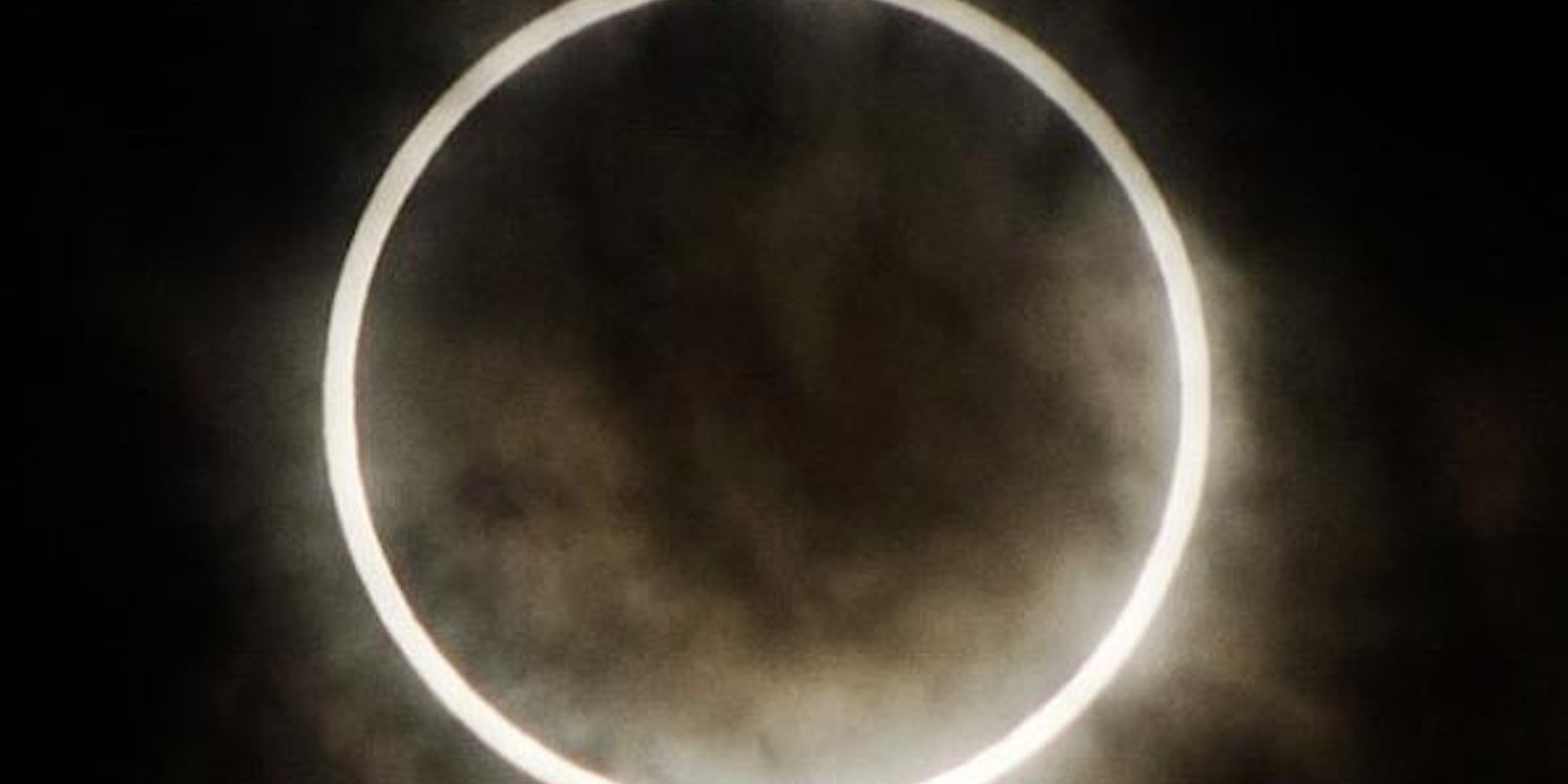Any total eclipse of the sun is a rare event, but Sunday’s eclipse, visible from parts of eastern Asia and western North America, was rare even by eclipse standards. The moon’s disc appeared a little smaller than usual, since the moon itself was at its farthest orbital point from earth.
In a regular total eclipse, the sun’s disc is entirely blocked, leaving only the halo of its glowing atmosphere, or “corona,” visible. Viewers Sunday night saw the corona and the outermost edges of the sun’s disc surrounding the moon, a particular type of solar eclipse known as an annular eclipse, or “ring of fire.”
Judging from the number of eclipse photos available online next morning, it’s probably not too much of an exaggeration to say that almost everyone who lives in the eclipse zone and has a camera and Internet connection took eclipse shots and shared them. The annular solar eclipse of 2012 might be history’s most-photographed solar eclipse to date.
Photo by @StyleEngine


